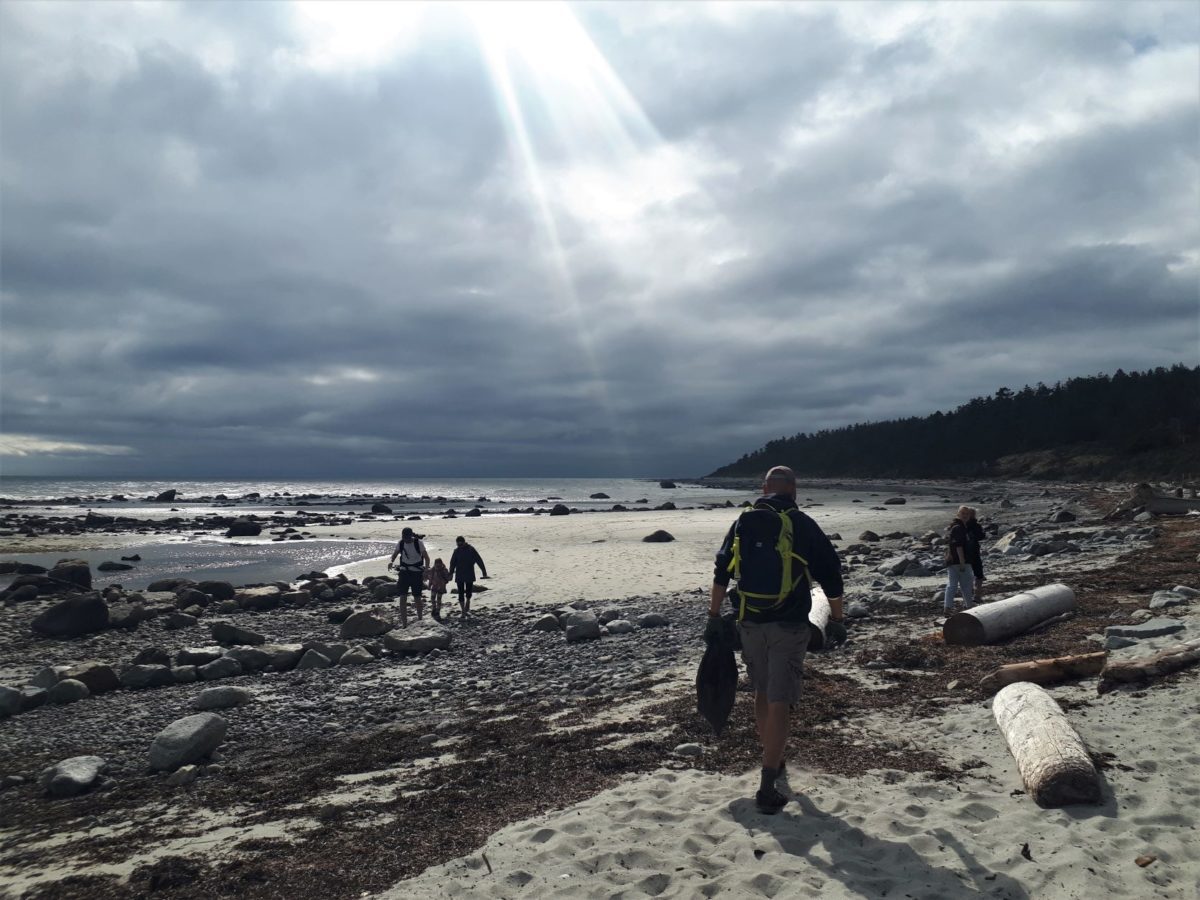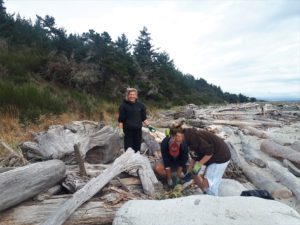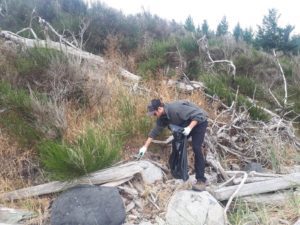
On August 26, seven hard working volunteers helped cleanup the shoreline at Duck Bay on Savary Island. This event was hosted by our Lower Mainland Conservation Field Crew who organized the two hour cleanup where they collected 100 KG of rubbish and ocean plastics.
Getting this kind of waste off of beaches is crucial for maintaining healthy ecosystems. It can often be difficult for wildlife to differentiate between food and items of garbage. Therefore, it is not uncommon for animals to ingest inedible garbage which can severely harm them and even lead to death. Once incorporated into the food chain, garbage such as microplastics and chemical toxins can become biomagnified as they move their way up the food chain, harming wildlife species at every trophic level. Most of the garbage collected at Duck Bay was Styrofoam, ropes, plastic bottles and old camping gear. After all their hard work, the crew and helpful volunteers enjoyed a smokie barbecue and celebrated their success!


Each year, globally, more than eight million tonnes of plastic waste enters oceans. This is essentially the equivalent to dumping a garbage truck of plastic into the sea every single minute. Although the task can seem daunting, taking the time to cleanup local beaches is critical for the health of our environment. We want to thank our incredible volunteers who took the time out of their day to make Savary Island a cleaner, and healthier place for wildlife.
We also wanted to give a special thank you to Al from Lund Water Taxi and Doug Christopher who helped barge the team and two trucks over to Savary Island.
Do you want to be a part of the team making Savary Island a healthier place for wildlife? Join the Nature Trust of BC on Wednesday, October 20th from 2:00 PM – 5:00 PM for an invasive Scotch Broom Pull.
Find more details and signup here.
Between 2002 and 2018, The Nature Trust of BC purchased and protected 351 acres in the “Heart of Savary”. This purchase saves critical habitat for the endangered and rare contorted-pod evening primrose as well as habitat for many species of birds.
